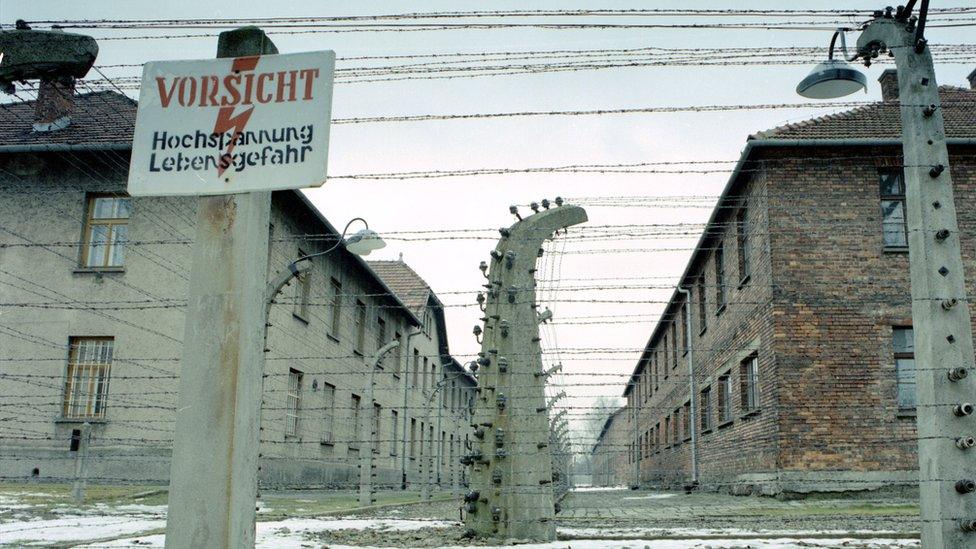Muslim girls complain of Polish racism on Holocaust study trip
- Published
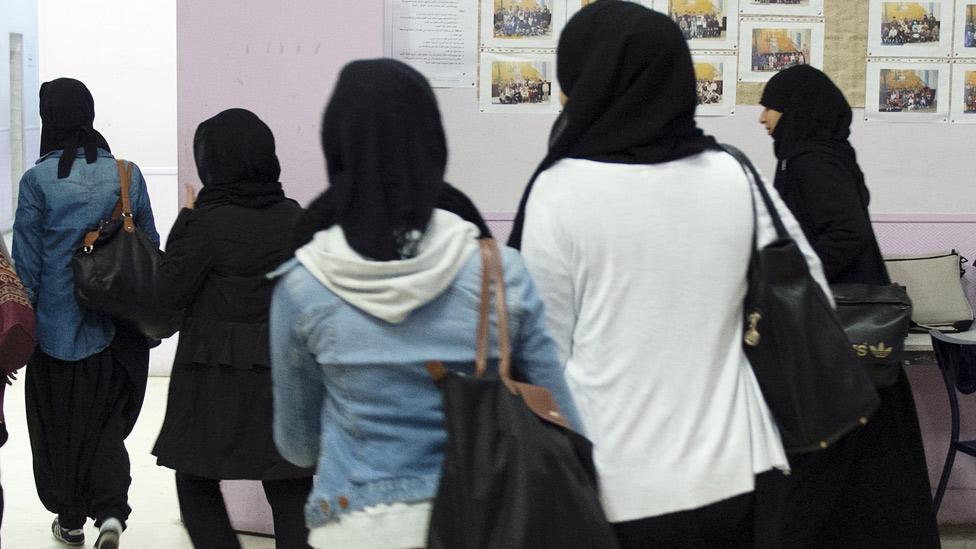
Muslim girls were shocked to be targeted by racists during a trip to visit Holocaust memorials
German Muslim schoolgirls who went on a visit to Holocaust memorials in eastern Poland say they were racially abused by locals during their trip.
The girls, from a Berlin school, spoke on Deutschlandfunk radio, external about their experience. Four were wearing Muslim headscarves - and say they were abused.
One girl said a man had spat on her in the street in Lublin, as police stood by grinning and did nothing.
Another girl said she was expelled from a shop for speaking Persian.
She had been speaking to her brother on the phone.
"They came up to me and said 'can you leave, you're disturbing the people here'. And I thought: Why? Just because I'm speaking Persian and I'm a foreigner? Yes," she told the radio station.
A Lublin police statement on Tuesday said "the trip participants did not report any complaints to Lublin police officers".
Group members had addressed two policemen in English, who "heard from the people translating that there was no problem", the statement said, adding: "the people exchanged polite smiles".
It also said police had examined CCTV footage, but it did "not show any incident involving foreigners".
Spitting and knives
In Lublin, the girls said, a market stallholder had refused to sell them water because they were foreigners. On another occasion, one girl was reportedly threatened with a knife.
And one girl said that in Lodz "a woman just came up to me and shouted 'get out!' and threw her drink over me and my camera - she said 'get lost!'"
They were among a group of 20 children - mostly Muslims - from the Theodor Heuss Community School in Berlin-Moabit.
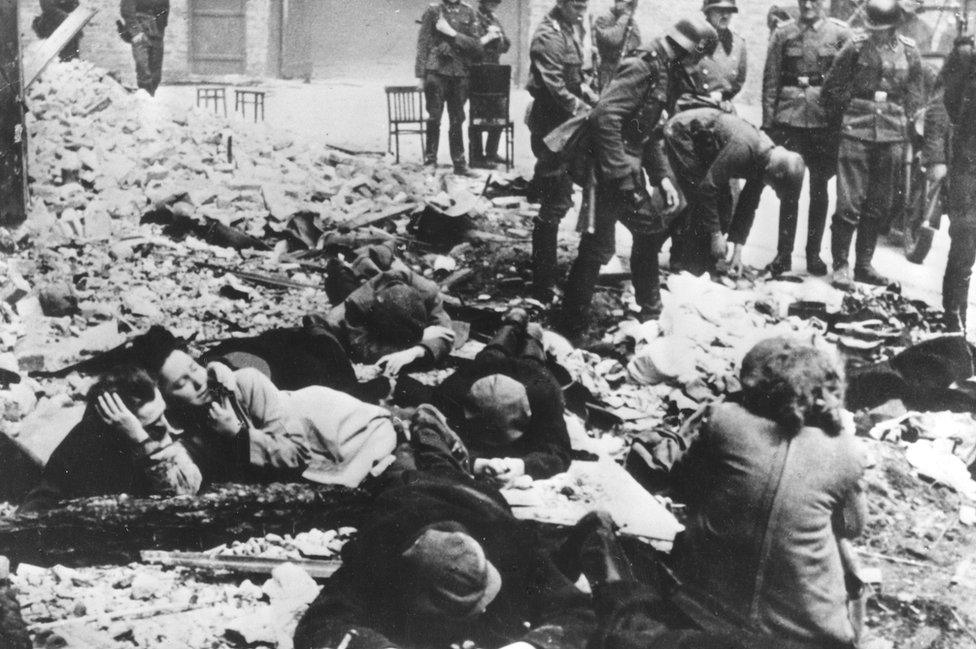
The Warsaw Ghetto, 1943: Jews were victimised and later exterminated by the Nazis
The Holocaust: Who are the missing million?
The idea of the visit came from a teacher who has encouraged students to find out about Germany's Jewish past. In 2015, Sabeth Schmidthals took another group of mainly Muslim pupils to Israel.
The Poland trip was arranged by a German Holocaust memorial body, the House of the Wannsee Conference. Its director, Hans-Christian Jasch, said: "I'm especially shocked that this happened to youngsters in our care on this trip - indeed, on a trip dedicated to studying this very topic [racism]. Of course that's particularly sad." He plans to complain to the Polish embassy in Berlin.
The Berlin group visited Majdanek, a camp on the outskirts of Lublin where the Nazi German SS murdered Jews during World War Two.
They also visited Treblinka, site of another Nazi death camp, and the cities of Warsaw and Lodz, whose Jewish communities were slaughtered by the Nazis.
The purpose of the trip was also to find out about the suffering of Polish civilians in general under Nazi occupation.
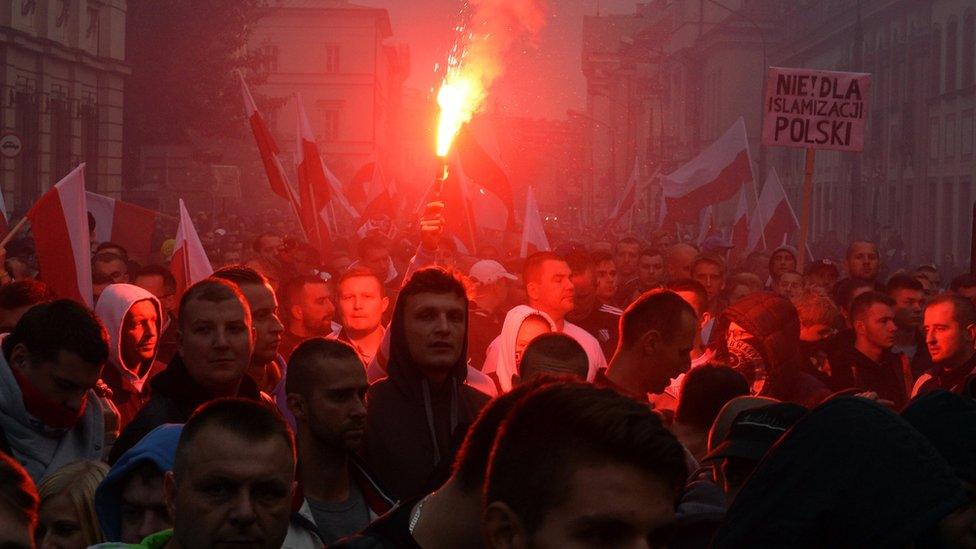
Anti-Muslim slogans were chanted at this Polish anti-immigrant rally in Warsaw in 2015
The Polish National Prosecutor's Office says that in 2016 anti-Muslim hate attacks almost doubled in Poland, compared with 2015.
"Foreigners residing in Poland, especially individuals from Arab countries, more and more often experience various types of attacks," said Sylwia Spurek, Polish Deputy Ombudsperson for Human Rights.
She told the BBC that the authorities - especially the police - must act against the "growing aversion or even hostility" towards foreigners.
Block on refugees
Poland's nationalist government refuses to take in Muslim refugees, arguing that they would struggle to integrate in Poland's Catholic-majority society.
The EU is in dispute with Poland, the Czech Republic, Slovakia and Hungary on the issue. The four countries reject an EU decision to relocate 160,000 refugees - many of them Muslim Syrians - currently stuck at reception centres in Italy and Greece.
The leader of Poland's ruling Law and Justice Party (PiS), Jaroslaw Kaczynski, said in October 2015 that the refugees posed a health hazard. He was speaking shortly before PiS triumphed in a general election.
"Also there are some differences related to geography, various parasites, protozoa that are common and are not dangerous in the bodies of these people, (but) may be dangerous here," he said.
Defending Poland's policy, Science and Higher Education Minister Jaroslaw Gowin said "every nation and people has a right to protect itself from extinction".
- Published15 June 2017
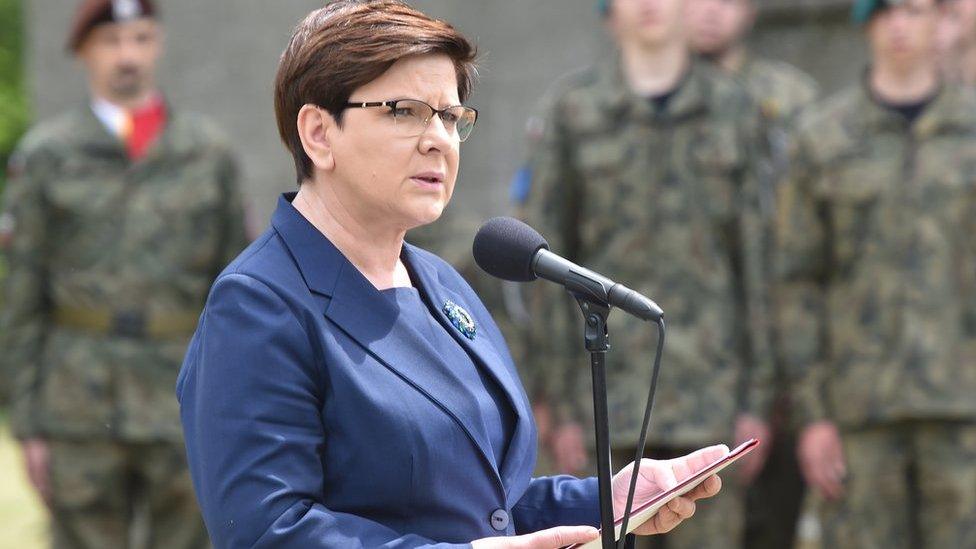
- Published13 June 2017
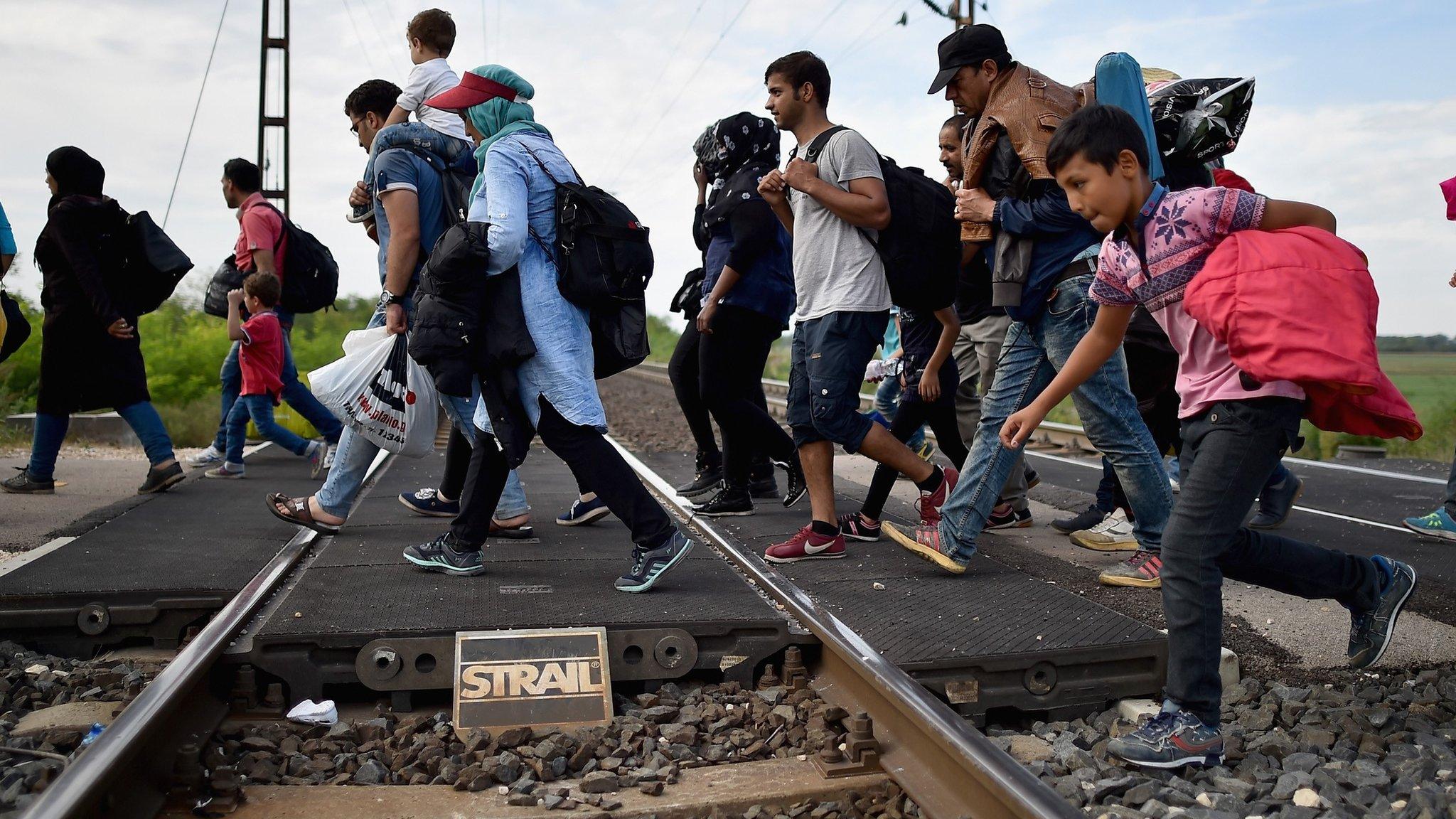
- Published2 January 2017
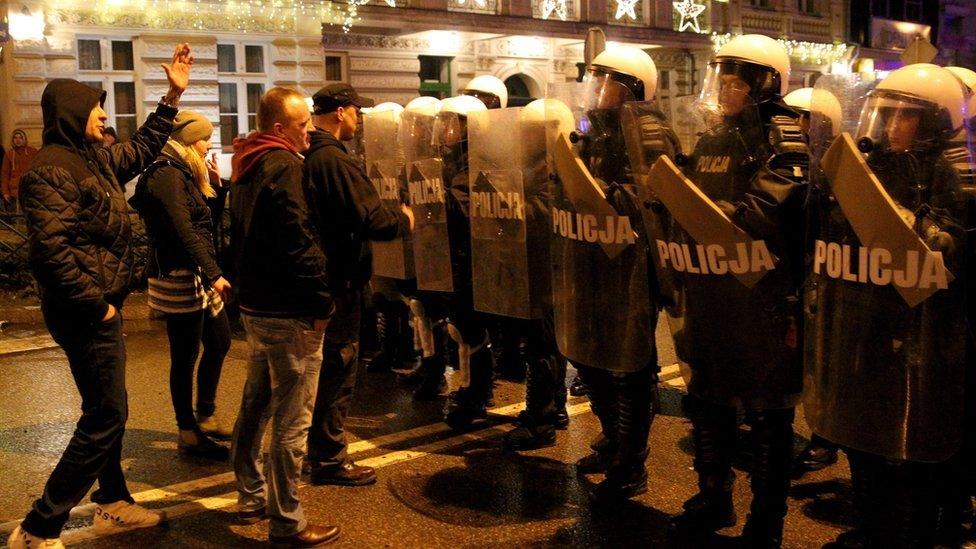
- Published16 August 2016
